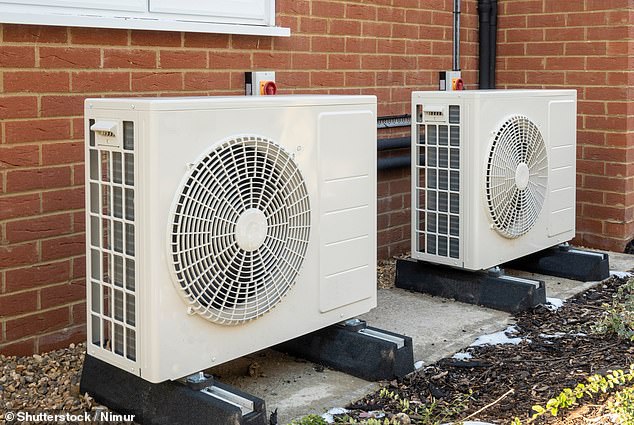Table of Contents
- Vouchers give eligible homeowners up to £7,500 off appliances such as heat pumps
- The scheme has received more than 35,000 applications since its launch in 2022
- A further £450 million in grants has been allocated to run until 2025
<!–
<!–
<!– <!–
<!–
<!–
<!–
Applications for the government’s green heating scheme increased by 75 per cent in February compared to a year ago, with heat pumps by far the most popular appliances to install.
A whopping 2,317 applications were made during the month for the Boiler Upgrade Scheme, which can provide homeowners with a value of up to £7,500.
It made February the third highest month for applications since the scheme started, the Department for Energy Security & Net Zero said. It comes after the amount available under the grant was increased to £7,500 in October 2023.
In February last year, the scheme received 1,321 applications. The figure also rose by 13 percent from the 2,046 applications in January.

Environmental option: Heat pumps are more energy efficient heating systems compared to gas or oil
Of the 35,741 applications submitted to the program to date, as many as 96 percent related to air-to-water heat pump installations. To date, 30,571 vouchers have been issued under the scheme.
The government said it has awarded 54 percent more vouchers for the boiler upgrade program in February 2024, at 1,868, up from 1,211 in February last year.
What is the boiler upgrade schedule?
The scheme, which opened applications in May 2022, offers up to £7,500 off the cost of a heat pump, or £5,000 off the cost of a biomass boiler.
Grant funding for heat pumps started at £5,000 for air source and £6,000 for ground source pumps, but was increased to their current levels in October 2023.
A further £450 million has been allocated for grant funding between 2022 and 2025.
The plan aims to expand the use of low-carbon heating systems in British homes, grow the low-carbon heating market and reduce carbon emissions from heating in British homes, as part of the government’s target to reach net zero emissions by 2050 .
Energy Security Minister Claire Coutinho said: No family should be forced to make changes that are not good for them. With the right support – such as increasing subsidies for heat pumps by 50 percent – families can make their homes warmer and reduce their emissions without having to break the bank.’
Charlotte Lee, CEO of the Heat Pump Association, added: ‘It is great to see the continued increase and interest in the Boiler Upgrade Scheme since the grant increase in October 2023, alongside the publication of a government guide for potential heat pump owners who will help to increase awareness of heat pumps, from a trusted source.’
Who chooses a heat pump?
The government said the number of grants paid out so far under the scheme stood at 22,307. Almost a fifth or 19 percent of these grants, or 4,295, were paid for installations in the South East of England, while a further 19 percent, 4,245, were for installations in the South West.
Just three per cent of grants paid were for properties in the North East of just 610 installations, while Wales received 1,295 grants, or six per cent of the total.
Nearly half, 47 percent, of homeowners were replacing a gas heating system, while 20 percent were replacing oil systems and 18 percent were installing heat pumps in homes that previously did not have a central heating system.
The government added that as much as 57 percent of these subsidies have gone to properties in rural areas, with the majority of properties also connected to the gas network.
The industry has called on the government to go further in promoting heat pumps to households.
Daniel Sarefjord, CEO of heat pump manufacturer Aira, said: ‘These figures show that British families are increasingly looking for new and more sustainable choices to heat their homes.
‘There is an urgent need for the government to go further and faster to unlock the exciting possibilities that heat pumps offer.
‘We can do that by removing red tape for heat pump installations, reforming the high tax burden on electricity that favors the gas industry and by letting the British public know unequivocally that electrifying our homes will not cost the earth.’

